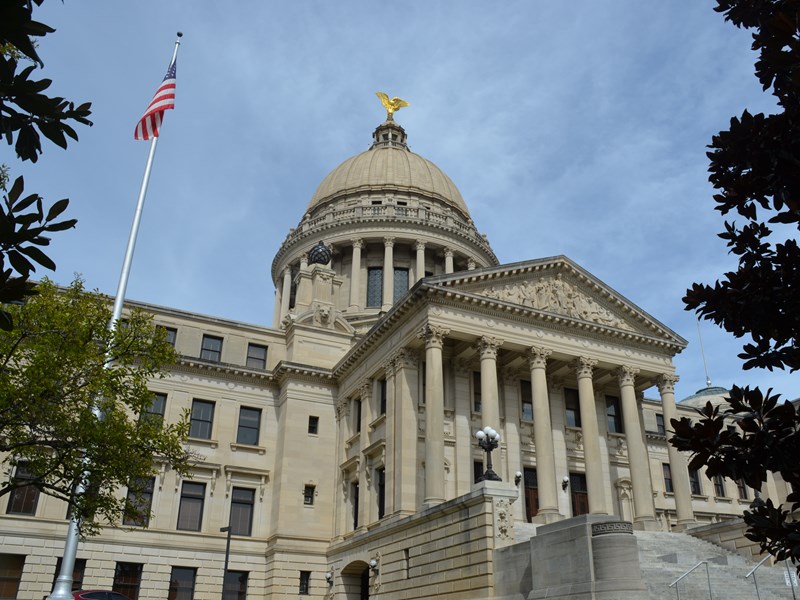The Mississippi House of Representatives passed a bill 83-32 Wednesday that aims to phase out individual income taxes by 2030.
“I am so proud of the House members who stepped up to support such a transformative income tax cut proposal,” House Speaker Philip Gunn said, according to The Clarion-Ledger.
“This legislation will make a significant, positive impact on the lives of the hard-working Mississippians paying income tax. They will be able to keep more of the money they earn, in turn stimulating economic growth.”
Though House Democrats opposed the bill, H.B. 1629, and decried it as election-year pandering, enough of them helped the Republicans reach a three-fifths majority Wednesday to send the bill to the Senate.
According to House Democratic Caucus Leader Bobby Moak, D-Bogue Chitto, the tax cut proposal was merely a trap set by Republicans.
“Democrats who voted no would have been set up for nasty negative campaign tactics in their campaigns for voting against the measure,” Moak said. “I do not believe this bill will make it through the legislative process and informed (Democrats) to vote yes in order to stop the Republicans from using the vote against them.”
“It was a sad day that political votes instead of public policy differences were the reason behind the vote for and against on this measure,” Moak added.
As of now, Mississippi residents pay a 3 percent tax on their first $5,000 of income, 4 percent on the next $5,000 and 5 percent on income exceeding $10,000.
Authored by Rep. Brad Mayo, R-Oxford, the House’s plan would eliminate state income taxes for the 3 percent bracket by 2019, the 4 percent bracket by 2022 and the 5 percent bracket by 2030.
The plan, if passed by the Senate, would go into effect July 1, and is estimated to cost the state $21 million in its first year, escalating to a final cost of $1.7 billion.
House Democrats argued against H.B. 1629 citing Kansas’ revenue problems as adequate reason to kill the bill. In 2013, Kansas approved legislation that would eventually eliminate individual income taxes, but the state’s government revenue dropped by more than 11 percent within a year.
Kansas has since made budget cuts for public education, universities and other agencies, and officials there are considering tax hikes.
Mayo’s tax proposal, Republicans say, includes a “growth trigger,” which makes it staunchly different from Kansas’ tax cuts. Gunn said this growth trigger means that the income tax cuts would only go into effect in years that state revenue grows by at least 3 percent.
“Growth trigger or not, the Mississippi Republican House plan and the Kansas plan have a lot in common,” Moak said. “If you look at the (committee) debate, they were so stung with the Kansas analysis they tried to distance themselves from it immediately when explaining their bill from the podium.”
According to Moak, there are some important similarities between the Mississippi and Kansas plans. Both plans result in cuts to state institutions like public schools and universities, both will decrease revenue for basic needs of government and both cater to the wealthiest citizens.
“Fifty-one percent of the population pay income tax,” Moak said. “Of that 51 percent the lowest will only see a $13 per year savings while the top bracket taxpayer will see a $22,000 savings.”
Income tax comprises 31 percent of state revenue, or $1.7 billion. Senior policy analyst at the Mississippi Economic Policy Center Sara Miller said the elimination of the state income tax would likely result in a “tax shift.”
“If we eliminate the income tax, in order to avoid drastic cuts to vital state services like schools and universities, revenue would have to be raised in other ways like sales taxes and property taxes — taxes that hit lower and middle-income Mississippians especially hard,” Miller told The Clarion-Ledger.
“Generally speaking, individuals in Mississippi are going to spend more money in a more productive manner than the government will,” said Forest Thigpen, president of the Mississippi Center for Public Policy. “The states with no income taxes are those seeing the most growth in their economies and in job growth.”
But according to Miller, the states with no income tax have special circumstances, allowing them to collect revenue via other taxes.
USA Today reported that the seven states with no income tax — Alaska, Washington, Texas, Nevada, Florida, South Dakota and Wyoming — relied on natural resources and a flourishing tourism industry to make up for lost revenue.
State legislators have until late March to pass a budget and pass or kill tax proposals.



































